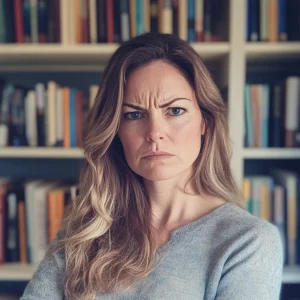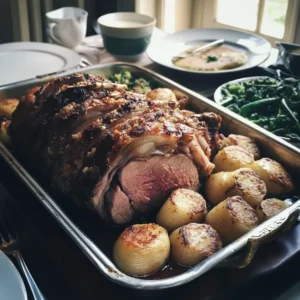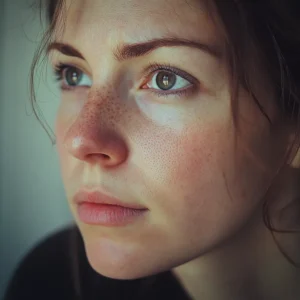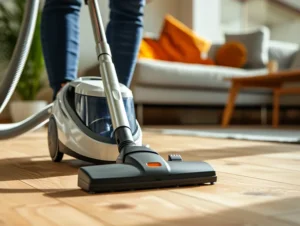Cooking for the first time can be intimidating. There are so many rules, tips, and techniques that experienced cooks take for granted. One common mistake that beginners make is washing vegetables with soap, believing that it will make the food cleaner. However, this is not only unnecessary but can also be harmful.
Why Would Someone Wash Vegetables with Soap?

If you’ve never cooked before, you might assume that soap is the best way to remove dirt and bacteria from vegetables. After all, soap is used to clean dishes, hands, and surfaces—so why not food? While this logic seems reasonable, it’s actually a big misconception.
Many beginners want to ensure that their produce is as clean as possible, especially with concerns about pesticides, bacteria, and dirt. However, using soap is an unnecessary step that can do more harm than good.
The Hidden Dangers of Washing Vegetables with Soap
Washing vegetables with soap might sound harmless, but it can lead to several problems:
1. Soap is Not Meant for Consumption
Household dish soap and hand soap contain chemicals and detergents that are not meant to be ingested. Even if you rinse thoroughly, soap residues can remain on the vegetables, leading to stomach discomfort or digestive issues when consumed.
2. It Can Alter the Taste of Your Food
Have you ever accidentally gotten soap in your mouth? That bitter, unpleasant taste can transfer to your food if you wash your vegetables with soap. This can completely ruin the flavor of your dishes.
3. Soap Can Strip Away Natural Protective Layers
Many vegetables and fruits have a natural protective coating that helps keep moisture in and bacteria out. Washing them with soap can strip away these natural defenses, causing them to spoil faster.
4. Risk of Chemical Ingestion
Some soaps contain harmful chemicals that can be dangerous if ingested, even in small amounts. This is why food-grade cleaning solutions exist for commercial use, but for home cooking, they are unnecessary.
What is the Proper Way to Wash Vegetables?
Now that we know why using soap is a bad idea, let’s talk about the correct way to clean your vegetables:
1. Rinse with Cold Water
The best and easiest way to clean produce is by rinsing it under running cold water. This helps remove dirt, bacteria, and pesticide residues without the need for soap or chemicals.
2. Use a Vegetable Brush for Tough Skins

For produce with thicker skins like potatoes, carrots, and cucumbers, using a vegetable brush can help scrub away dirt more effectively.
3. Soak in Vinegar or Baking Soda Water (Optional)
If you’re extra cautious, soaking vegetables in a solution of vinegar and water (1 part vinegar to 3 parts water) for a few minutes can help remove more bacteria and pesticide residue. Baking soda water is another great alternative.
4. Peel When Necessary
If you’re concerned about contaminants, peeling vegetables like carrots, cucumbers, or apples can help remove pesticide residues and dirt.
5. Dry Properly
After washing, pat your vegetables dry with a clean towel or let them air dry. This helps prevent bacterial growth and keeps them fresh longer.
Common Misconceptions About Cleaning Vegetables

There are plenty of myths about washing vegetables, and it’s important to separate fact from fiction:
- “Hot water kills bacteria faster.” – While hot water can kill bacteria, it can also cause vegetables to wilt or lose nutrients. Stick with cold water.
- “Soap removes pesticides better than water.” – Water alone does a great job of removing most pesticide residues, especially if you scrub or soak the produce.
- “You need special fruit and vegetable washes.” – While commercial produce washes exist, studies show they’re not significantly more effective than plain water.
Final Thoughts
Washing vegetables is an essential step in cooking, but using soap is a rookie mistake that should be avoided. Soap isn’t designed for consumption, and it can leave harmful residues on your food. Instead, stick to cold water, gentle scrubbing, and natural cleaning solutions like vinegar or baking soda.
Cooking is a learning process, and mistakes happen. But now that you know why soap and veggies don’t mix, you’re one step closer to becoming a kitchen pro. Happy cooking!
I RETURNED HOME TO FIND MY FURNITURE ON THE CURB — MY EX’S REVENGE WAS A TOTAL FLOP
When Gina and her husband Brendan decided to separate, she took a break from the drama by staying with her parents for the weekend. But when she came back home, she was shocked to find all her things spread out on the lawn.
To her surprise, Gina discovered a valuable item that belonged to Brendan among the scattered items. This turn of events gave her a chance for some well-deserved revenge.
After deciding to split up, Brendan changed completely. The man she had shared her life with was now replaced by someone who was bitter and resentful.

“You’re complaining about how I act? How I talk?” Brendan shouted.
“I’m just saying you need to calm down. Yelling won’t help you get your point across,” I said, holding my head.
“Oh, come on, Gina,” he yelled even louder. “You made me this way! With all your demands and constant complaints. Just go live your life.”

So, I did.
As the divorce moved forward, Brendan and I tried to organize our things and make a clean break.
“Just let me pack up these items, Gina,” Brendan said one day, rummaging through my bookshelf.
https://googleads.g.doubleclick.net/pagead/ads?gdpr=0&us_privacy=1—&gpp_sid=-1&client=ca-pub-1773658762833587&output=html&h=280&adk=1030787214&adf=720187423&pi=t.aa~a.95137260~i.23~rp.4&w=622&abgtt=7&fwrn=4&fwrnh=100&lmt=1725902305&num_ads=1&rafmt=1&armr=3&sem=mc&pwprc=1191565633&ad_type=text_image&format=622×280&url=https%3A%2F%2Fjokesdaddy.com%2Fi-returned-home-to-find-my-furniture-on-the-curb-my-exs-revenge-was-a-total-flop%2F%3Ffbclid%3DIwY2xjawFMDSVleHRuA2FlbQIxMAABHYAHkHko4VBJwIKgo-i2YcTNliNhvQJKX2gLUYIJeKwHrdqYp9JbH7Enog_aem_8Tw_lJmy-8mQGSYVjGHsWg&host=ca-host-pub-2644536267352236&fwr=0&pra=3&rh=156&rw=622&rpe=1&resp_fmts=3&wgl=1&fa=27&uach=WyJXaW5kb3dzIiwiMC4zLjAiLCJ4ODYiLCIiLCIxMDkuMC41NDE0LjE2OCIsbnVsbCwwLG51bGwsIjY0IixbWyJOb3RfQSBCcmFuZCIsIjk5LjAuMC4wIl0sWyJHb29nbGUgQ2hyb21lIiwiMTA5LjAuNTQxNC4xNjgiXSxbIkNocm9taXVtIiwiMTA5LjAuNTQxNC4xNjgiXV0sMF0.&dt=1725902294117&bpp=2&bdt=1491&idt=2&shv=r20240904&mjsv=m202409040101&ptt=9&saldr=aa&abxe=1&cookie=ID%3Da1918bbb8764ee47%3AT%3D1712800604%3ART%3D1725902290%3AS%3DALNI_MaZVumXXHZ_r8ay8rIc_wLHZkNFRA&gpic=UID%3D00000de8294ca1d6%3AT%3D1712800604%3ART%3D1725902290%3AS%3DALNI_MYK6Nwd1vVe2KMyk5-RmsEA7W_MdQ&eo_id_str=ID%3D416b984e50de4687%3AT%3D1712800604%3ART%3D1725902290%3AS%3DAA-AfjaIy_YNLEGxhgDI–Ucx1la&prev_fmts=0x0%2C980x280%2C622x280%2C622x280%2C1031x592&nras=6&correlator=1544306263510&frm=20&pv=1&u_tz=420&u_his=2&u_h=768&u_w=1360&u_ah=728&u_aw=1360&u_cd=24&u_sd=1&dmc=8&adx=46&ady=2645&biw=1031&bih=592&scr_x=0&scr_y=300&eid=44759876%2C44759927%2C44759837%2C31086863%2C44795921%2C95331689%2C95338228%2C95341662%2C95342032&oid=2&psts=AOrYGsmf74lC_o21lLWT-y8JkPdukEJjdEVLTcFNTTiI2MZtQZOn7gm9fqBXJQ204LPhK5TyyxqB7RJhCBpYrWpEH-d-pg%2CAOrYGslm7CZaHYJzHMUmoGvGJvYYp6CdXPnY5Kqrg8UwXSl9jtcaAW2FWR21z4RRl7V_999Rm6DuOU4vb3WsX2AqBwh4lOA%2CAOrYGsn1iALXUthP_uepeflxfYJ3mJhDDjEuRc4KMfVMdd9wGa9hfSH_6kGIKr7cb7_mBUbdcC5gbV6sbGZ2HwBUV2-sNAY&pvsid=1127631096421780&tmod=632698115&uas=3&nvt=1&ref=https%3A%2F%2Fl.facebook.com%2F&fc=1408&brdim=147%2C16%2C147%2C16%2C1360%2C0%2C1064%2C712%2C1048%2C592&vis=1&rsz=%7C%7Cs%7C&abl=NS&fu=128&bc=31&bz=1.02&psd=W251bGwsbnVsbCxudWxsLDNd&ifi=5&uci=a!5&btvi=3&fsb=1&dtd=11228
“You’ll just end up taking my things with you,” I replied. “I need to sort out my own stuff first.”
“Fine,” he said.

But things only got worse. The emotional stress left me feeling constantly nauseous and uneasy. So, I decided to spend the weekend at my parents’ house to clear my head.
“Yeah, run away to your parents,” Brendan sneered as I packed an overnight bag.
https://googleads.g.doubleclick.net/pagead/ads?gdpr=0&us_privacy=1—&gpp_sid=-1&client=ca-pub-1773658762833587&output=html&h=280&adk=1030787214&adf=1527610060&pi=t.aa~a.95137260~i.33~rp.4&w=622&abgtt=7&fwrn=4&fwrnh=100&lmt=1725902308&num_ads=1&rafmt=1&armr=3&sem=mc&pwprc=1191565633&ad_type=text_image&format=622×280&url=https%3A%2F%2Fjokesdaddy.com%2Fi-returned-home-to-find-my-furniture-on-the-curb-my-exs-revenge-was-a-total-flop%2F%3Ffbclid%3DIwY2xjawFMDSVleHRuA2FlbQIxMAABHYAHkHko4VBJwIKgo-i2YcTNliNhvQJKX2gLUYIJeKwHrdqYp9JbH7Enog_aem_8Tw_lJmy-8mQGSYVjGHsWg&host=ca-host-pub-2644536267352236&fwr=0&pra=3&rh=156&rw=622&rpe=1&resp_fmts=3&wgl=1&fa=27&uach=WyJXaW5kb3dzIiwiMC4zLjAiLCJ4ODYiLCIiLCIxMDkuMC41NDE0LjE2OCIsbnVsbCwwLG51bGwsIjY0IixbWyJOb3RfQSBCcmFuZCIsIjk5LjAuMC4wIl0sWyJHb29nbGUgQ2hyb21lIiwiMTA5LjAuNTQxNC4xNjgiXSxbIkNocm9taXVtIiwiMTA5LjAuNTQxNC4xNjgiXV0sMF0.&dt=1725902294129&bpp=2&bdt=1503&idt=2&shv=r20240904&mjsv=m202409040101&ptt=9&saldr=aa&abxe=1&cookie=ID%3Da1918bbb8764ee47%3AT%3D1712800604%3ART%3D1725902290%3AS%3DALNI_MaZVumXXHZ_r8ay8rIc_wLHZkNFRA&gpic=UID%3D00000de8294ca1d6%3AT%3D1712800604%3ART%3D1725902290%3AS%3DALNI_MYK6Nwd1vVe2KMyk5-RmsEA7W_MdQ&eo_id_str=ID%3D416b984e50de4687%3AT%3D1712800604%3ART%3D1725902290%3AS%3DAA-AfjaIy_YNLEGxhgDI–Ucx1la&prev_fmts=0x0%2C980x280%2C622x280%2C622x280%2C1031x592%2C622x280&nras=7&correlator=1544306263510&frm=20&pv=1&u_tz=420&u_his=2&u_h=768&u_w=1360&u_ah=728&u_aw=1360&u_cd=24&u_sd=1&dmc=8&adx=46&ady=3165&biw=1031&bih=592&scr_x=0&scr_y=800&eid=44759876%2C44759927%2C44759837%2C31086863%2C44795921%2C95331689%2C95338228%2C95341662%2C95342032&oid=2&psts=AOrYGsmf74lC_o21lLWT-y8JkPdukEJjdEVLTcFNTTiI2MZtQZOn7gm9fqBXJQ204LPhK5TyyxqB7RJhCBpYrWpEH-d-pg%2CAOrYGslm7CZaHYJzHMUmoGvGJvYYp6CdXPnY5Kqrg8UwXSl9jtcaAW2FWR21z4RRl7V_999Rm6DuOU4vb3WsX2AqBwh4lOA%2CAOrYGsn1iALXUthP_uepeflxfYJ3mJhDDjEuRc4KMfVMdd9wGa9hfSH_6kGIKr7cb7_mBUbdcC5gbV6sbGZ2HwBUV2-sNAY&pvsid=1127631096421780&tmod=632698115&uas=1&nvt=1&ref=https%3A%2F%2Fl.facebook.com%2F&fc=1408&brdim=147%2C16%2C147%2C16%2C1360%2C0%2C1064%2C712%2C1048%2C592&vis=1&rsz=%7C%7Cs%7C&abl=NS&fu=128&bc=31&bz=1.02&psd=W251bGwsbnVsbCxudWxsLDNd&ifi=6&uci=a!6&btvi=4&fsb=1&dtd=14067
“They’re better than you,” I said, walking out the door.

And honestly? It was the right choice. I needed space to process everything, especially the fact that I was going to be on my own for the first time in twelve years. Even though Brendan and I needed to be apart, I couldn’t see my future clearly.
I also just wanted my parents to take care of me for the weekend.
https://googleads.g.doubleclick.net/pagead/ads?gdpr=0&us_privacy=1—&gpp_sid=-1&client=ca-pub-1773658762833587&output=html&h=280&adk=1030787214&adf=1586282284&pi=t.aa~a.95137260~i.41~rp.4&w=622&abgtt=7&fwrn=4&fwrnh=100&lmt=1725902319&num_ads=1&rafmt=1&armr=3&sem=mc&pwprc=1191565633&ad_type=text_image&format=622×280&url=https%3A%2F%2Fjokesdaddy.com%2Fi-returned-home-to-find-my-furniture-on-the-curb-my-exs-revenge-was-a-total-flop%2F%3Ffbclid%3DIwY2xjawFMDSVleHRuA2FlbQIxMAABHYAHkHko4VBJwIKgo-i2YcTNliNhvQJKX2gLUYIJeKwHrdqYp9JbH7Enog_aem_8Tw_lJmy-8mQGSYVjGHsWg&host=ca-host-pub-2644536267352236&fwr=0&pra=3&rh=156&rw=622&rpe=1&resp_fmts=3&wgl=1&fa=27&uach=WyJXaW5kb3dzIiwiMC4zLjAiLCJ4ODYiLCIiLCIxMDkuMC41NDE0LjE2OCIsbnVsbCwwLG51bGwsIjY0IixbWyJOb3RfQSBCcmFuZCIsIjk5LjAuMC4wIl0sWyJHb29nbGUgQ2hyb21lIiwiMTA5LjAuNTQxNC4xNjgiXSxbIkNocm9taXVtIiwiMTA5LjAuNTQxNC4xNjgiXV0sMF0.&dt=1725902294136&bpp=1&bdt=1510&idt=1&shv=r20240904&mjsv=m202409040101&ptt=9&saldr=aa&abxe=1&cookie=ID%3Da1918bbb8764ee47%3AT%3D1712800604%3ART%3D1725902290%3AS%3DALNI_MaZVumXXHZ_r8ay8rIc_wLHZkNFRA&gpic=UID%3D00000de8294ca1d6%3AT%3D1712800604%3ART%3D1725902290%3AS%3DALNI_MYK6Nwd1vVe2KMyk5-RmsEA7W_MdQ&eo_id_str=ID%3D416b984e50de4687%3AT%3D1712800604%3ART%3D1725902290%3AS%3DAA-AfjaIy_YNLEGxhgDI–Ucx1la&prev_fmts=0x0%2C980x280%2C622x280%2C622x280%2C1031x592%2C622x280%2C622x280&nras=8&correlator=1544306263510&frm=20&pv=1&u_tz=420&u_his=2&u_h=768&u_w=1360&u_ah=728&u_aw=1360&u_cd=24&u_sd=1&dmc=8&adx=46&ady=3674&biw=1031&bih=592&scr_x=0&scr_y=1400&eid=44759876%2C44759927%2C44759837%2C31086863%2C44795921%2C95331689%2C95338228%2C95341662%2C95342032&oid=2&psts=AOrYGsmf74lC_o21lLWT-y8JkPdukEJjdEVLTcFNTTiI2MZtQZOn7gm9fqBXJQ204LPhK5TyyxqB7RJhCBpYrWpEH-d-pg%2CAOrYGslm7CZaHYJzHMUmoGvGJvYYp6CdXPnY5Kqrg8UwXSl9jtcaAW2FWR21z4RRl7V_999Rm6DuOU4vb3WsX2AqBwh4lOA%2CAOrYGsn1iALXUthP_uepeflxfYJ3mJhDDjEuRc4KMfVMdd9wGa9hfSH_6kGIKr7cb7_mBUbdcC5gbV6sbGZ2HwBUV2-sNAY&pvsid=1127631096421780&tmod=632698115&uas=3&nvt=1&ref=https%3A%2F%2Fl.facebook.com%2F&fc=1408&brdim=147%2C16%2C147%2C16%2C1360%2C0%2C1064%2C712%2C1048%2C592&vis=1&rsz=%7C%7Cs%7C&abl=NS&fu=128&bc=31&bz=1.02&psd=W251bGwsbnVsbCxudWxsLDNd&ifi=7&uci=a!7&btvi=5&fsb=1&dtd=25709
“Oh, Gina,” my mother said as she took out a tray of delicious roast lamb. “All you need to do is eat and rest. Whatever you want to eat, just tell me and I’ll make it. And if you need anything from the store, just tell Dad. He’ll make a quick run for you.”

I took a deep breath. I was exactly where I needed to be.
“Are you sure a divorce is the right choice?” my father asked me during dinner.
https://googleads.g.doubleclick.net/pagead/ads?gdpr=0&us_privacy=1—&gpp_sid=-1&client=ca-pub-1773658762833587&output=html&h=280&adk=1030787214&adf=2314894532&pi=t.aa~a.95137260~i.49~rp.4&w=622&abgtt=7&fwrn=4&fwrnh=100&lmt=1725902326&num_ads=1&rafmt=1&armr=3&sem=mc&pwprc=1191565633&ad_type=text_image&format=622×280&url=https%3A%2F%2Fjokesdaddy.com%2Fi-returned-home-to-find-my-furniture-on-the-curb-my-exs-revenge-was-a-total-flop%2F%3Ffbclid%3DIwY2xjawFMDSVleHRuA2FlbQIxMAABHYAHkHko4VBJwIKgo-i2YcTNliNhvQJKX2gLUYIJeKwHrdqYp9JbH7Enog_aem_8Tw_lJmy-8mQGSYVjGHsWg&host=ca-host-pub-2644536267352236&fwr=0&pra=3&rh=156&rw=622&rpe=1&resp_fmts=3&wgl=1&fa=27&uach=WyJXaW5kb3dzIiwiMC4zLjAiLCJ4ODYiLCIiLCIxMDkuMC41NDE0LjE2OCIsbnVsbCwwLG51bGwsIjY0IixbWyJOb3RfQSBCcmFuZCIsIjk5LjAuMC4wIl0sWyJHb29nbGUgQ2hyb21lIiwiMTA5LjAuNTQxNC4xNjgiXSxbIkNocm9taXVtIiwiMTA5LjAuNTQxNC4xNjgiXV0sMF0.&dt=1725902294141&bpp=2&bdt=1514&idt=2&shv=r20240904&mjsv=m202409040101&ptt=9&saldr=aa&abxe=1&cookie=ID%3Da1918bbb8764ee47%3AT%3D1712800604%3ART%3D1725902290%3AS%3DALNI_MaZVumXXHZ_r8ay8rIc_wLHZkNFRA&gpic=UID%3D00000de8294ca1d6%3AT%3D1712800604%3ART%3D1725902290%3AS%3DALNI_MYK6Nwd1vVe2KMyk5-RmsEA7W_MdQ&eo_id_str=ID%3D416b984e50de4687%3AT%3D1712800604%3ART%3D1725902290%3AS%3DAA-AfjaIy_YNLEGxhgDI–Ucx1la&prev_fmts=0x0%2C980x280%2C622x280%2C622x280%2C1031x592%2C622x280%2C622x280%2C622x280&nras=9&correlator=1544306263510&frm=20&pv=1&u_tz=420&u_his=2&u_h=768&u_w=1360&u_ah=728&u_aw=1360&u_cd=24&u_sd=1&dmc=8&adx=46&ady=4182&biw=1031&bih=592&scr_x=0&scr_y=1900&eid=44759876%2C44759927%2C44759837%2C31086863%2C44795921%2C95331689%2C95338228%2C95341662%2C95342032&oid=2&psts=AOrYGsmf74lC_o21lLWT-y8JkPdukEJjdEVLTcFNTTiI2MZtQZOn7gm9fqBXJQ204LPhK5TyyxqB7RJhCBpYrWpEH-d-pg%2CAOrYGslm7CZaHYJzHMUmoGvGJvYYp6CdXPnY5Kqrg8UwXSl9jtcaAW2FWR21z4RRl7V_999Rm6DuOU4vb3WsX2AqBwh4lOA%2CAOrYGsn1iALXUthP_uepeflxfYJ3mJhDDjEuRc4KMfVMdd9wGa9hfSH_6kGIKr7cb7_mBUbdcC5gbV6sbGZ2HwBUV2-sNAY&pvsid=1127631096421780&tmod=632698115&uas=3&nvt=1&ref=https%3A%2F%2Fl.facebook.com%2F&fc=1408&brdim=147%2C16%2C147%2C16%2C1360%2C0%2C1064%2C712%2C1048%2C592&vis=1&rsz=%7C%7Cs%7C&abl=NS&fu=128&bc=31&bz=1.02&psd=W251bGwsbnVsbCxudWxsLDNd&ifi=8&uci=a!8&btvi=6&fsb=1&dtd=32261
“Yes,” I said with a heavy heart. “If there was ever a chance for us to fix things, it was a long time ago. We’ve missed that chance. Brendan and I just don’t see things the same way anymore. I don’t think there’s any love left between us.”

“You do what you need to do, honey,” my mother said. “If your mental health is telling you that you need a fresh start, then that’s what you should go for.”
I took her advice to heart and spent my time taking long walks with Pippy, my parents’ dog. I needed to clear my head and give myself the space to breathe.
https://googleads.g.doubleclick.net/pagead/ads?gdpr=0&us_privacy=1—&gpp_sid=-1&client=ca-pub-1773658762833587&output=html&h=280&adk=1030787214&adf=44561737&pi=t.aa~a.95137260~i.57~rp.4&w=622&abgtt=7&fwrn=4&fwrnh=100&lmt=1725902328&num_ads=1&rafmt=1&armr=3&sem=mc&pwprc=1191565633&ad_type=text_image&format=622×280&url=https%3A%2F%2Fjokesdaddy.com%2Fi-returned-home-to-find-my-furniture-on-the-curb-my-exs-revenge-was-a-total-flop%2F%3Ffbclid%3DIwY2xjawFMDSVleHRuA2FlbQIxMAABHYAHkHko4VBJwIKgo-i2YcTNliNhvQJKX2gLUYIJeKwHrdqYp9JbH7Enog_aem_8Tw_lJmy-8mQGSYVjGHsWg&host=ca-host-pub-2644536267352236&fwr=0&pra=3&rh=156&rw=622&rpe=1&resp_fmts=3&wgl=1&fa=27&uach=WyJXaW5kb3dzIiwiMC4zLjAiLCJ4ODYiLCIiLCIxMDkuMC41NDE0LjE2OCIsbnVsbCwwLG51bGwsIjY0IixbWyJOb3RfQSBCcmFuZCIsIjk5LjAuMC4wIl0sWyJHb29nbGUgQ2hyb21lIiwiMTA5LjAuNTQxNC4xNjgiXSxbIkNocm9taXVtIiwiMTA5LjAuNTQxNC4xNjgiXV0sMF0.&dt=1725902294148&bpp=1&bdt=1522&idt=2&shv=r20240904&mjsv=m202409040101&ptt=9&saldr=aa&abxe=1&cookie=ID%3Da1918bbb8764ee47%3AT%3D1712800604%3ART%3D1725902290%3AS%3DALNI_MaZVumXXHZ_r8ay8rIc_wLHZkNFRA&gpic=UID%3D00000de8294ca1d6%3AT%3D1712800604%3ART%3D1725902290%3AS%3DALNI_MYK6Nwd1vVe2KMyk5-RmsEA7W_MdQ&eo_id_str=ID%3D416b984e50de4687%3AT%3D1712800604%3ART%3D1725902290%3AS%3DAA-AfjaIy_YNLEGxhgDI–Ucx1la&prev_fmts=0x0%2C980x280%2C622x280%2C622x280%2C1031x592%2C622x280%2C622x280%2C622x280%2C622x280&nras=10&correlator=1544306263510&frm=20&pv=1&u_tz=420&u_his=2&u_h=768&u_w=1360&u_ah=728&u_aw=1360&u_cd=24&u_sd=1&dmc=8&adx=46&ady=4736&biw=1031&bih=592&scr_x=0&scr_y=2400&eid=44759876%2C44759927%2C44759837%2C31086863%2C44795921%2C95331689%2C95338228%2C95341662%2C95342032&oid=2&psts=AOrYGsmf74lC_o21lLWT-y8JkPdukEJjdEVLTcFNTTiI2MZtQZOn7gm9fqBXJQ204LPhK5TyyxqB7RJhCBpYrWpEH-d-pg%2CAOrYGslm7CZaHYJzHMUmoGvGJvYYp6CdXPnY5Kqrg8UwXSl9jtcaAW2FWR21z4RRl7V_999Rm6DuOU4vb3WsX2AqBwh4lOA%2CAOrYGsn1iALXUthP_uepeflxfYJ3mJhDDjEuRc4KMfVMdd9wGa9hfSH_6kGIKr7cb7_mBUbdcC5gbV6sbGZ2HwBUV2-sNAY&pvsid=1127631096421780&tmod=632698115&uas=3&nvt=1&ref=https%3A%2F%2Fl.facebook.com%2F&fc=1408&brdim=147%2C16%2C147%2C16%2C1360%2C0%2C1064%2C712%2C1048%2C592&vis=1&rsz=%7C%7Cs%7C&abl=NS&fu=128&bc=31&bz=1.02&psd=W251bGwsbnVsbCxudWxsLDNd&ifi=9&uci=a!9&btvi=7&fsb=1&dtd=34664
“You’re making the right choice,” I reassured myself. “There’s nothing wrong with starting over.”

When I got home on Monday morning, expecting to find Brendan and his things gone, I was met with a shock.
My entire collection of furniture, from before and during our marriage, was spread all over the lawn. A huge hand-painted sign that said “Free Stuff!” was proudly displayed, inviting anyone passing by to take whatever they wanted.

“What on earth is this?” I muttered, slamming the car door.
I couldn’t believe what I was seeing. My coffee table, the flea market couch, and even my grandmother’s old rocking chair were all out on the lawn, baking in the sun and waiting to be taken by anyone who passed by.
I kicked the sign down so it lay flat and pulled out my phone, my hands shaking as I dialed Brendan. After three rings, he finally answered.

“Hey, what’s up, Gina?” he answered, sounding casual, almost smug.
“What’s up?” I echoed. “What’s up?”
“Yeah, that’s what I asked,” he said.
“Are you kidding me? Why is all my furniture on the lawn? Are you absolutely out of your mind?”
There was a pause before he replied.

“You were going to sue for all my money anyway,” he said. “I heard you on the phone with someone. I know you wanted everything, or at least half of it! So you might as well know how it feels to lose what’s yours.”
I was speechless.
Sure, I had thought about taking him for a ride and getting my share of his money, but the weekend away with my parents had taught me to let it go.

“You’re absolutely unbelievable,” I finally managed to say. “You think this is going to solve anything? You’re just making things worse for yourself.”
He scoffed loudly.
“Whatever. It’s your problem now. Maybe you should charge people for your things instead of letting them take it for free.”
I wanted to scream, but I knew it wouldn’t help. Brendan had made up his mind, and like any dog with a bone, there was no reasoning with him.

I crouched down and opened the drawer, where I found a small, velvet pouch. As I opened it, my heart raced. Inside was a stunning gold necklace with a large diamond pendant—one that Brendan had always bragged about but claimed was lost.
I couldn’t believe my luck. Brendan’s petty move had actually handed me a priceless item. I smiled despite everything.
I took a deep breath, feeling a spark of satisfaction. This necklace, once a symbol of Brendan’s arrogance, was now mine. I packed it away carefully, deciding it would be my little piece of revenge.
Seeing the family heirloom tucked away in the drawer, a smirk crept onto my face despite my anger. Brendan’s father’s watch, a cherished piece that he rarely wore, was now in my hands.
“Stupid Brendan,” I muttered under my breath. He’d clearly overlooked this valuable item in his hasty revenge.
I carefully wrapped the watch and tucked it into my bag alongside the necklace. As much as the whole situation had been frustrating, it felt good to have something of value—something Brendan truly cared about—as a small victory in this mess.
As I slipped Brendan’s watch into my pocket, I couldn’t help but feel a sense of triumph. “Checkmate,” I said to myself, a small smile on my face. He had left it out there for anyone to take, and I wasn’t about to let this opportunity go to waste.
Next, I quickly texted my friends, asking for help to move everything back into the house. Their support would be crucial in getting my belongings back inside safely.
“Brendan is the worst, Gina,” my friend Jenny said, carrying a lamp. “This is a new low.”
“Yeah, I agree with you there,” I replied. “But don’t worry, I’ve got a way to get back at him.”
I explained to Jenny about the watch and how I had it safely tucked away in my car. I was sure Brendan would eventually notice it was missing, and I was ready to use it as a bargaining chip.

“Look, the neighbors came over and took a few things. The bedside tables are gone too. But if you’re polite enough, I’m sure Cathy will sell them back to you.”
There was a long pause on the other end of the line.
“Gina, it’s my dad’s watch. My granddad’s watch. I really need it back.”
I let the silence stretch for a moment before responding.
“I see. Well, like I said, it’s with Cathy. But I’m sure she’ll be reasonable. You know, for the right price.”
I nodded and said, “Thanks. You can leave now.”
“I’ll get in touch with you about the divorce. My lawyer has some things to discuss with us,” he replied.
“Cool,” I said simply.
Brendan did a double-take, then took the watch from me and walked away slowly, as if he wanted to say something but couldn’t find the words.



Leave a Reply